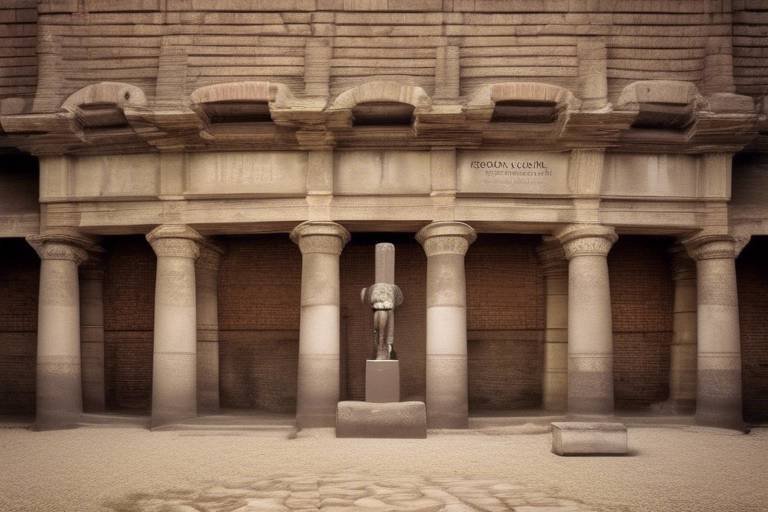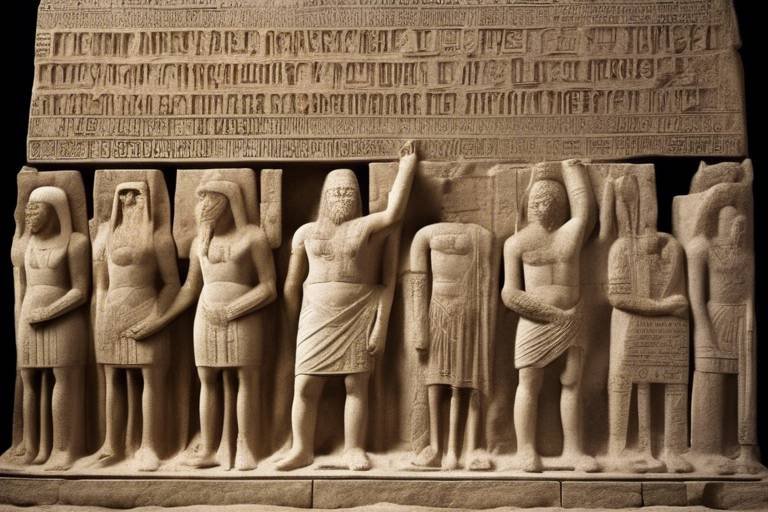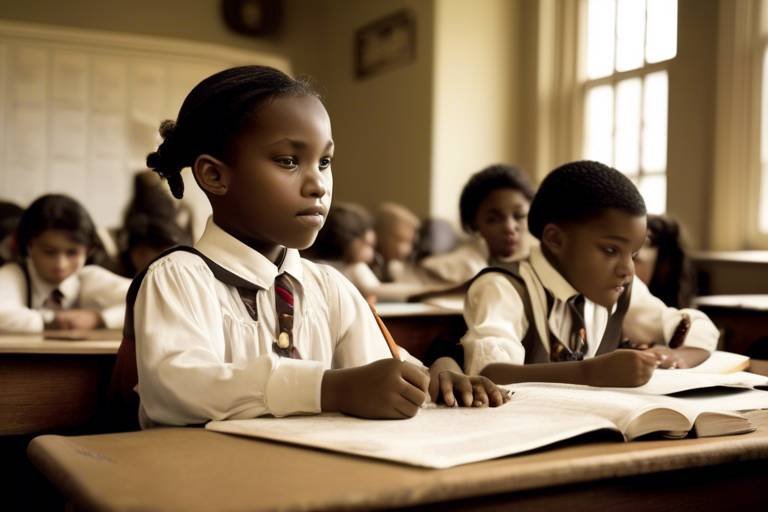The Ancient Norse Pantheon - Gods and Goddesses
Exploring the deities of Norse mythology reveals a captivating world filled with powerful gods and goddesses revered by the ancient Norse people. These divine figures play vital roles in shaping the Norse cosmos, embodying various aspects of life, nature, and the human experience.
At the pinnacle of the Norse pantheon stands Odin, the Allfather and chief of the gods. Renowned for his wisdom and connection to magic, war, and death, Odin rules over Asgard, the realm of the gods. His domain encompasses poetry, knowledge, and the gallows, making him a complex and multifaceted deity.
Thor, the thunderous god of thunder, emerges as a stalwart protector wielding his mighty hammer, Mjölnir. Known for his strength, courage, and unwavering defense against giants and monsters, Thor embodies the fierce spirit of protection cherished by both gods and mortals alike.
Frigg, the Queen of Asgard and wife of Odin, assumes the role of goddess of marriage, motherhood, and the home. Gifted with prophecy and unwavering devotion to her family, Frigg symbolizes the nurturing and protective aspects of femininity within Norse mythology.
The enigmatic Loki, a trickster god of cunning and mischief, dances on the edge of chaos within the pantheon. With his shape-shifting abilities and penchant for clever schemes, Loki challenges the established order of Asgard, stirring up trouble and testing the boundaries of divine authority.
Freya, the captivating goddess of love, beauty, and fertility, embodies a potent blend of power and independence. Associated with magic, war, and sensuality, Freya encapsulates the duality of love and conflict, symbolizing the complexities of human emotion and desire.
Tyr, the god of law and justice, stands as a paragon of duty, courage, and sacrifice within the Norse pantheon. Revered for his role in binding the monstrous wolf Fenrir and upholding cosmic order, Tyr represents the unwavering pursuit of justice and righteousness in the face of adversity.
Baldur, the radiant god of light and purity, emanates beauty, goodness, and invulnerability among the gods. Bringing joy and peace to Asgard, Baldur's tragic fate evokes deep mourning and serves as a poignant reminder of the fragility of divine existence.
Hel, the enigmatic goddess of the underworld, presides over Helheim, the realm of the dead. Associated with death, rebirth, and fate, Hel offers solace to those who pass from sickness or old age, embodying the cyclical nature of life and the inevitability of mortality.
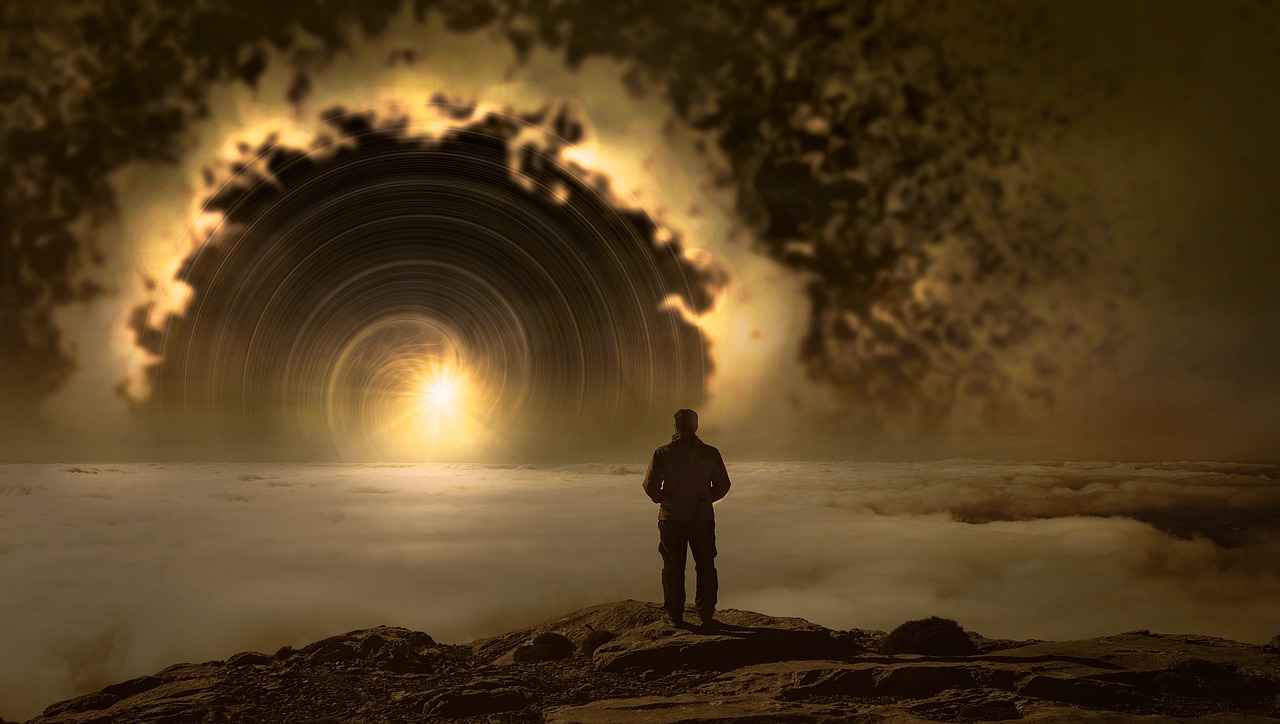
Odin, the Allfather
Exploring the deities of Norse mythology, this article delves into the rich tapestry of gods and goddesses worshipped by the ancient Norse people, their roles, attributes, and significance in Norse culture and belief systems.
Odin, the chief of the Norse gods, is known for his wisdom, magic, and connection to war and death. He rules over Asgard, the realm of the gods, and is associated with poetry, knowledge, and the gallows.
Odin, also known as the Allfather, is a complex deity with many facets to his character. He is not only the god of war and death but also the god of wisdom and poetry. This duality reflects the intricate balance of life and death in Norse mythology.
One of Odin's most iconic symbols is his spear, Gungnir, which never misses its target when thrown. This represents Odin's precision and foresight in all matters, whether in battle or in matters of knowledge and prophecy.
As the ruler of Asgard, Odin is often depicted as a wise and powerful figure, guiding the other gods with his knowledge and insight. His sacrifices, including hanging himself from the World Tree Yggdrasil, showcase his willingness to undergo great trials for the greater good.
In Norse mythology, Odin's association with the gallows stems from his role as a psychopomp, guiding the souls of the dead to the afterlife. This connection to death highlights the cyclical nature of life and the importance of embracing both light and darkness.
Overall, Odin's multifaceted nature as the Allfather embodies the complexities of existence, from wisdom and knowledge to war and death, making him a central figure in the Norse pantheon.
- Who is the most powerful Norse god?
While all Norse gods possess unique strengths and abilities, Odin is often regarded as the most powerful due to his wisdom, magic, and leadership over Asgard. - What is the significance of Thor's hammer, Mjölnir?
Mjölnir is a symbol of protection, strength, and the power to defend against threats. It is also associated with fertility and consecration. - How is Freya different from Frigg?
Freya is associated with love, beauty, and war, while Frigg is connected to marriage, motherhood, and the home. Both goddesses hold significant roles in Norse mythology. - What is the role of Loki in Norse mythology?
Loki is known as the Trickster god who challenges the order of the cosmos through his cunning schemes and shape-shifting abilities. He is a complex figure who brings chaos and change to Asgard.
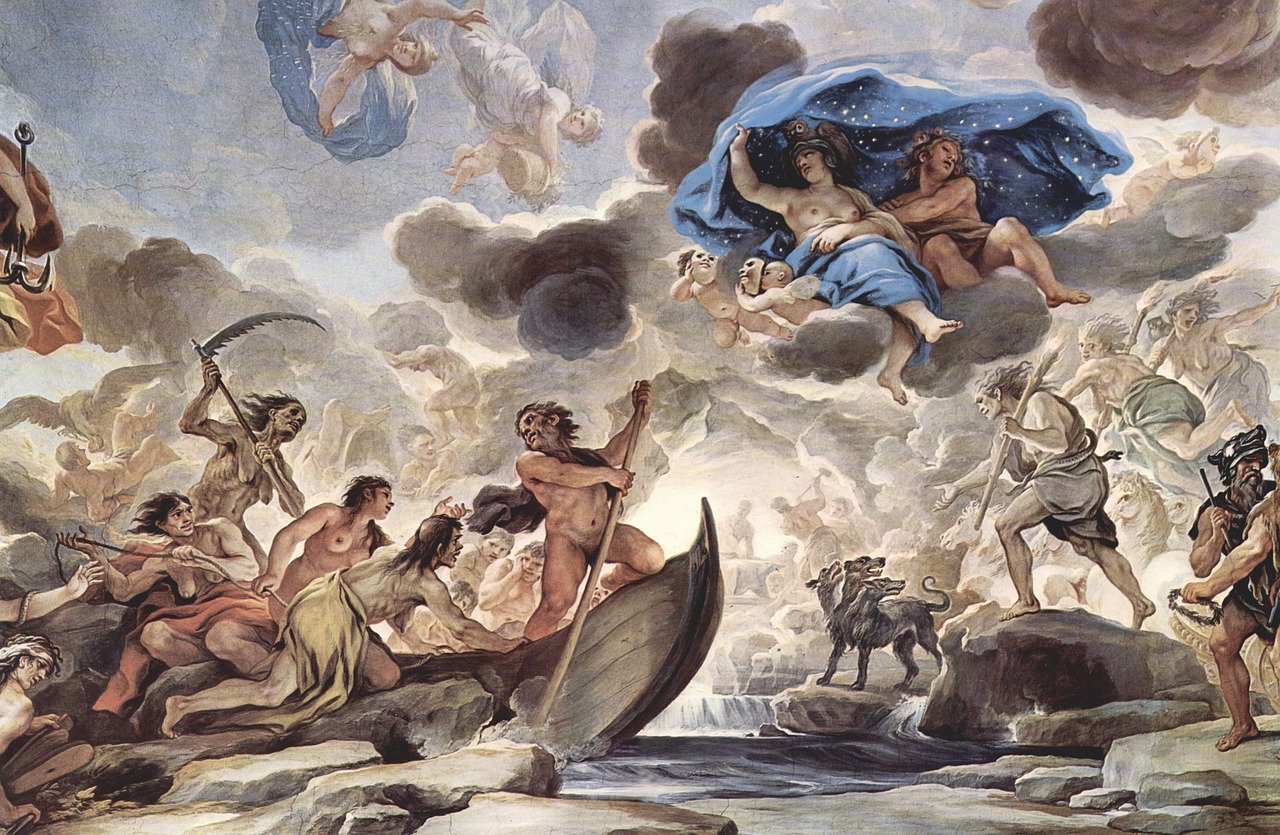
Thor, God of Thunder
Exploring the deities of Norse mythology, this article delves into the rich tapestry of gods and goddesses worshipped by the ancient Norse people, their roles, attributes, and significance in Norse culture and belief systems.
Thor, the mighty thunder god, is a prominent figure in Norse mythology, revered for his strength, courage, and fierce protection of both gods and mortals. With his powerful hammer Mjölnir, Thor defends humanity from threats like giants and monsters, embodying the forces of nature and the power of thunderstorms. His red beard and fierce expression symbolize his ferocity in battle, while his iron gloves and belt of strength enhance his prowess in combat.
Known for his quick temper and unwavering loyalty to his family and allies, Thor is a formidable warrior and a symbol of protection in the Norse pantheon. His thunderous chariot drawn by the goats Tanngrisnir and Tanngnjóstr echoes across the skies, announcing his presence and inspiring awe and respect among both gods and mortals.
Despite his fierce nature, Thor also embodies qualities of generosity and honor, often engaging in adventures and quests to prove his valor and uphold justice. His enduring popularity among the Norse people reflects his role as a guardian and champion, a beacon of hope in the face of adversity and danger.
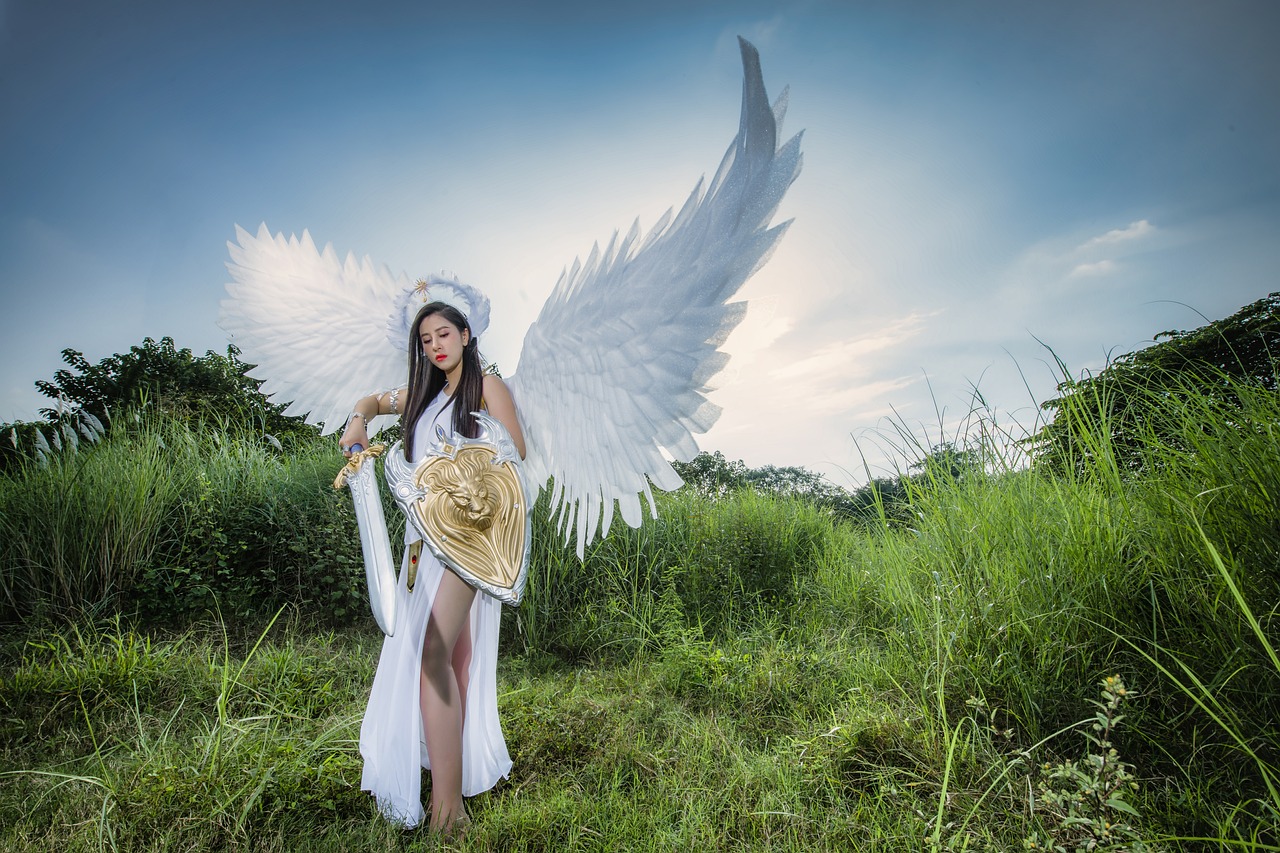
Frigg, Queen of Asgard
Exploring the deities of Norse mythology, this article delves into the rich tapestry of gods and goddesses worshipped by the ancient Norse people, their roles, attributes, and significance in Norse culture and belief systems.
Odin, the chief of the Norse gods, is known for his wisdom, magic, and connection to war and death. He rules over Asgard, the realm of the gods, and is associated with poetry, knowledge, and the gallows.
Thor, the mighty thunder god, wields his hammer Mjölnir to protect humanity from threats like giants and monsters. He is revered for his strength, courage, and fierce protection of both gods and mortals.
Frigg, the wife of Odin, is the queen of Asgard and the goddess of marriage, motherhood, and the home. She possesses the gift of prophecy and is deeply devoted to her family and the well-being of all.
Loki, the mischievous and cunning god, is both a friend and foe to the gods. Known for his shape-shifting abilities and clever schemes, he often brings chaos and trouble to Asgard, challenging the order of the cosmos.
Freya, the enchanting goddess of love, beauty, and fertility, is a powerful and independent figure in Norse mythology. She is associated with magic, war, and sensuality, embodying both love and war in equal measure.
Tyr, the god of law and heroic glory, is revered for his sense of duty, courage, and sacrifice. He is known for his role in binding the monstrous wolf Fenrir and upholding justice and order in the cosmos.
Baldur, the beloved and radiant god of light and purity, is known for his beauty, goodness, and invulnerability. He brings joy and peace to the gods and is mourned deeply when he meets a tragic fate.
Hel, the ruler of the realm of the dead, Helheim, is a complex figure associated with death, rebirth, and fate. She governs over those who die of sickness or old age, offering a place for the deceased to dwell in peace.
Frigg, the wife of Odin and the queen of Asgard, holds a significant place in Norse mythology. She is not only a symbol of marriage, motherhood, and the home but also a powerful deity with the gift of prophecy. Frigg's wisdom and care for her family and all beings are unparalleled, making her a revered figure among the gods and mortals alike.
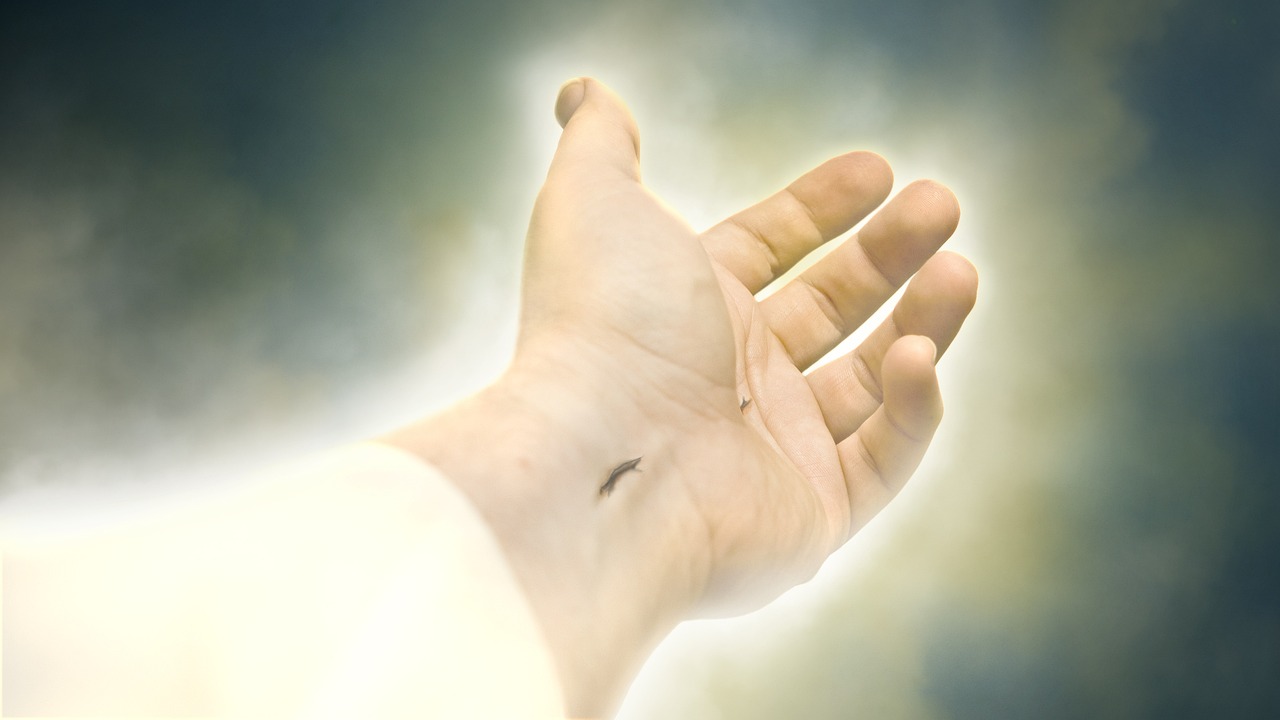
Loki, the Trickster
Exploring the deities of Norse mythology, this article delves into the rich tapestry of gods and goddesses worshipped by the ancient Norse people, their roles, attributes, and significance in Norse culture and belief systems.
Odin, the chief of the Norse gods, is known for his wisdom, magic, and connection to war and death. He rules over Asgard, the realm of the gods, and is associated with poetry, knowledge, and the gallows.
Thor, the mighty thunder god, wields his hammer Mjölnir to protect humanity from threats like giants and monsters. He is revered for his strength, courage, and fierce protection of both gods and mortals.
Frigg, the wife of Odin, is the queen of Asgard and the goddess of marriage, motherhood, and the home. She possesses the gift of prophecy and is deeply devoted to her family and the well-being of all.
Loki, the mischievous and cunning god, is both a friend and foe to the gods. Known for his shape-shifting abilities and clever schemes, he often brings chaos and trouble to Asgard, challenging the order of the cosmos.
Freya, the enchanting goddess of love, beauty, and fertility, is a powerful and independent figure in Norse mythology. She is associated with magic, war, and sensuality, embodying both love and war in equal measure.
Tyr, the god of law and heroic glory, is revered for his sense of duty, courage, and sacrifice. He is known for his role in binding the monstrous wolf Fenrir and upholding justice and order in the cosmos.
Baldur, the beloved and radiant god of light and purity, is known for his beauty, goodness, and invulnerability. He brings joy and peace to the gods and is mourned deeply when he meets a tragic fate.
Hel, the ruler of the realm of the dead, Helheim, is a complex figure associated with death, rebirth, and fate. She governs over those who die of sickness or old age, offering a place for the deceased to dwell in peace.
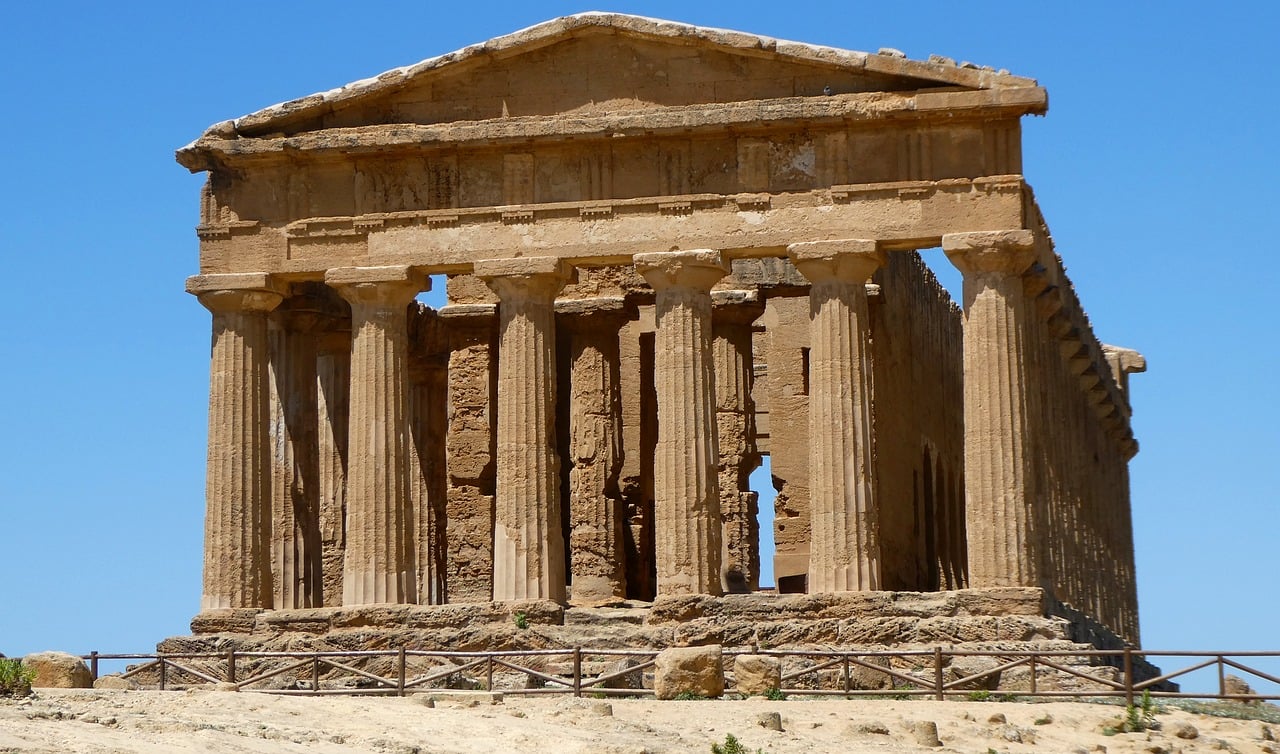
Freya, the Goddess of Love
Exploring the deities of Norse mythology, this article delves into the rich tapestry of gods and goddesses worshipped by the ancient Norse people, their roles, attributes, and significance in Norse culture and belief systems.
Freya, the enchanting goddess of love, beauty, and fertility, is a powerful and independent figure in Norse mythology. She is associated with magic, war, and sensuality, embodying both love and war in equal measure.
Known for her captivating beauty and fierce determination, Freya is revered for her ability to bring love and passion into the lives of both gods and mortals. She is a symbol of desire and empowerment, representing the complexities of relationships and the strength found in vulnerability.
Freya's domain extends beyond matters of the heart, as she is also a skilled practitioner of seiðr, a form of Norse magic associated with prophecy and fate. This dual nature of Freya as a goddess of both love and magic highlights her versatility and depth as a divine figure.
As a warrior goddess, Freya is not only a beacon of love but also a fierce protector of her people. She rides into battle wearing a falcon feather cloak, inspiring courage and valor in those who fight alongside her. Her presence on the battlefield is a symbol of strength and resilience, reflecting her unwavering commitment to defending the ones she holds dear.
Freya's association with fertility further emphasizes her role as a nurturing and life-giving force in Norse mythology. She is often invoked by those seeking abundance, growth, and renewal, embodying the cyclical nature of life and the interconnectedness of all living beings.
Overall, Freya stands as a multifaceted deity who embodies the complexities of love, power, and resilience. Her presence in Norse mythology serves as a reminder of the enduring strength found in vulnerability and the transformative power of love in all its forms.
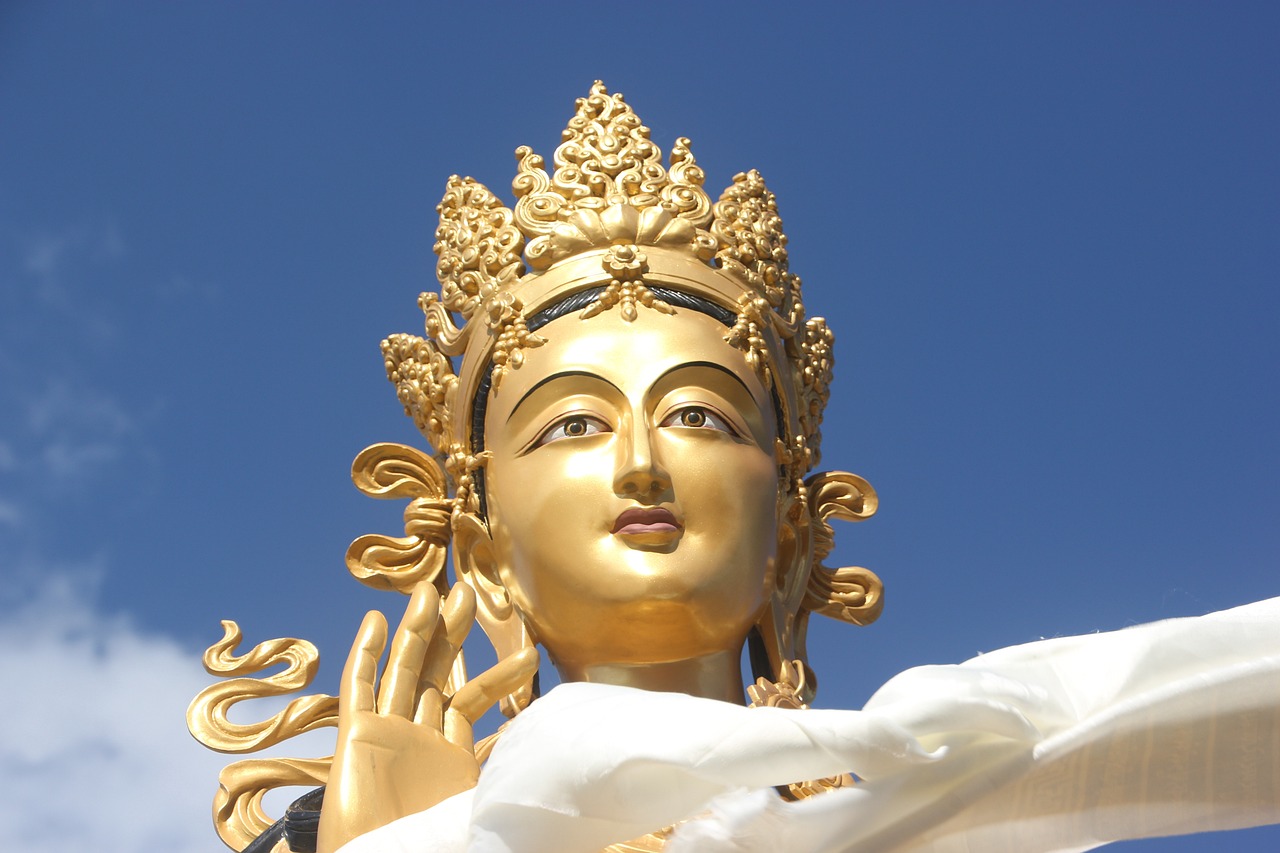
Tyr, God of Law and Justice
Exploring the deities of Norse mythology, this article delves into the rich tapestry of gods and goddesses worshipped by the ancient Norse people, their roles, attributes, and significance in Norse culture and belief systems.
Odin, the chief of the Norse gods, is known for his wisdom, magic, and connection to war and death. He rules over Asgard, the realm of the gods, and is associated with poetry, knowledge, and the gallows.
Thor, the mighty thunder god, wields his hammer Mjölnir to protect humanity from threats like giants and monsters. He is revered for his strength, courage, and fierce protection of both gods and mortals.
Frigg, the wife of Odin, is the queen of Asgard and the goddess of marriage, motherhood, and the home. She possesses the gift of prophecy and is deeply devoted to her family and the well-being of all.
Loki, the mischievous and cunning god, is both a friend and foe to the gods. Known for his shape-shifting abilities and clever schemes, he often brings chaos and trouble to Asgard, challenging the order of the cosmos.
Freya, the enchanting goddess of love, beauty, and fertility, is a powerful and independent figure in Norse mythology. She is associated with magic, war, and sensuality, embodying both love and war in equal measure.
Tyr, the god of law and heroic glory, is revered for his sense of duty, courage, and sacrifice. He is known for his role in binding the monstrous wolf Fenrir and upholding justice and order in the cosmos.
Baldur, the beloved and radiant god of light and purity, is known for his beauty, goodness, and invulnerability. He brings joy and peace to the gods and is mourned deeply when he meets a tragic fate.
Hel, the ruler of the realm of the dead, Helheim, is a complex figure associated with death, rebirth, and fate. She governs over those who die of sickness or old age, offering a place for the deceased to dwell in peace.
Q: Who is the most powerful god in Norse mythology?
A: Odin, also known as the Allfather, is considered the most powerful god in Norse mythology due to his wisdom, magic, and leadership over the gods.
Q: What is the significance of Thor's hammer, Mjölnir?
A: Thor's hammer, Mjölnir, is a symbol of protection, strength, and the power to defend against enemies. It is also associated with thunder and lightning, reflecting Thor's role as the god of thunder.
Q: How is Loki depicted in Norse mythology?
A: Loki is depicted as a complex character, often embodying both mischief and cunning. He is known for his shape-shifting abilities and his tendency to challenge the established order of the gods.
Q: What is the role of Freya in Norse mythology?
A: Freya plays a significant role as the goddess of love, beauty, and fertility. She is also associated with magic, war, and sensuality, embodying a balance between love and conflict.
Q: How does Hel govern the realm of the dead in Norse mythology?
A: Hel governs over the realm of the dead, Helheim, where those who die of sickness or old age find their final resting place. She is associated with death, rebirth, and the cyclical nature of life.
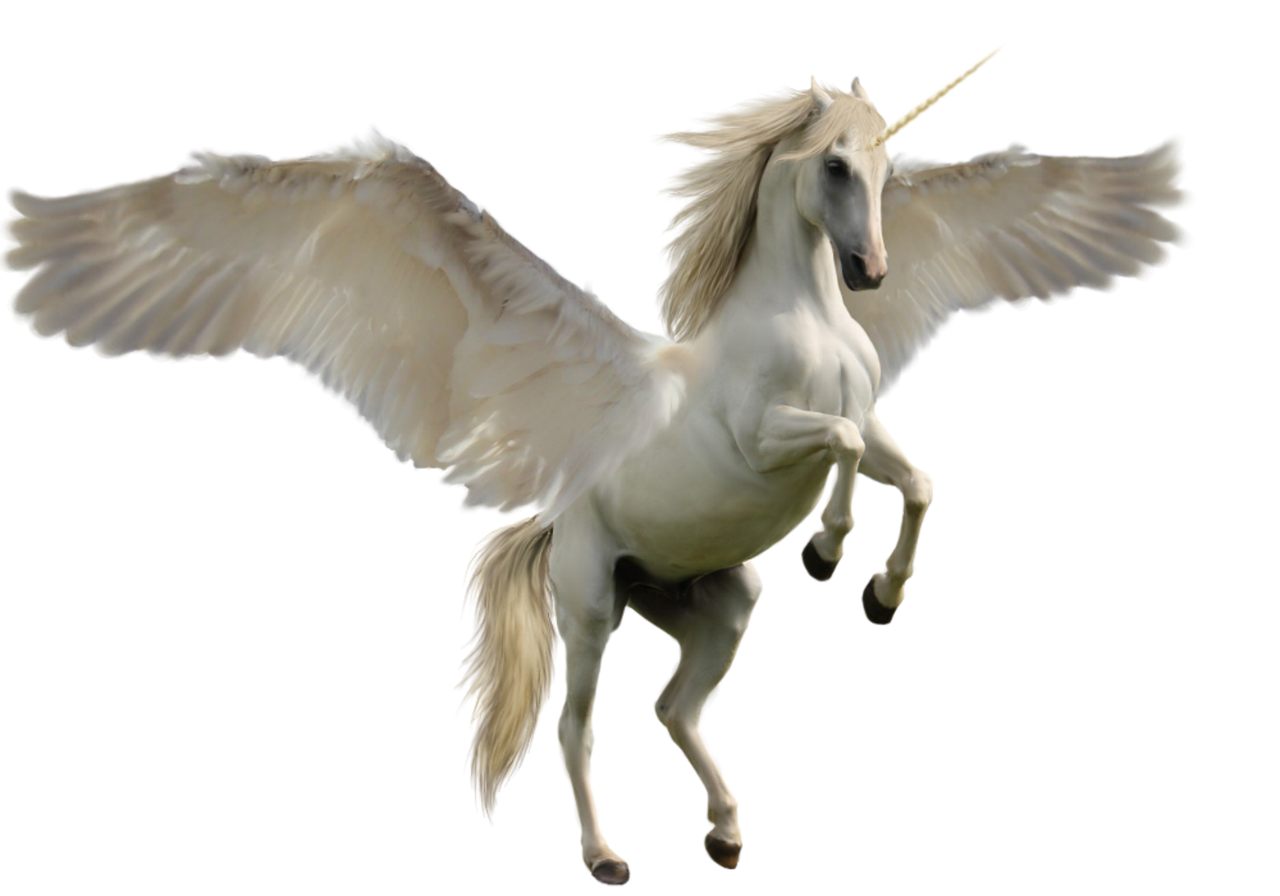
Baldur, the Shining God
Exploring the deities of Norse mythology, this article delves into the rich tapestry of gods and goddesses worshipped by the ancient Norse people, their roles, attributes, and significance in Norse culture and belief systems.
Baldur, the beloved and radiant god of light and purity, is known for his beauty, goodness, and invulnerability. He brings joy and peace to the gods and is mourned deeply when he meets a tragic fate.
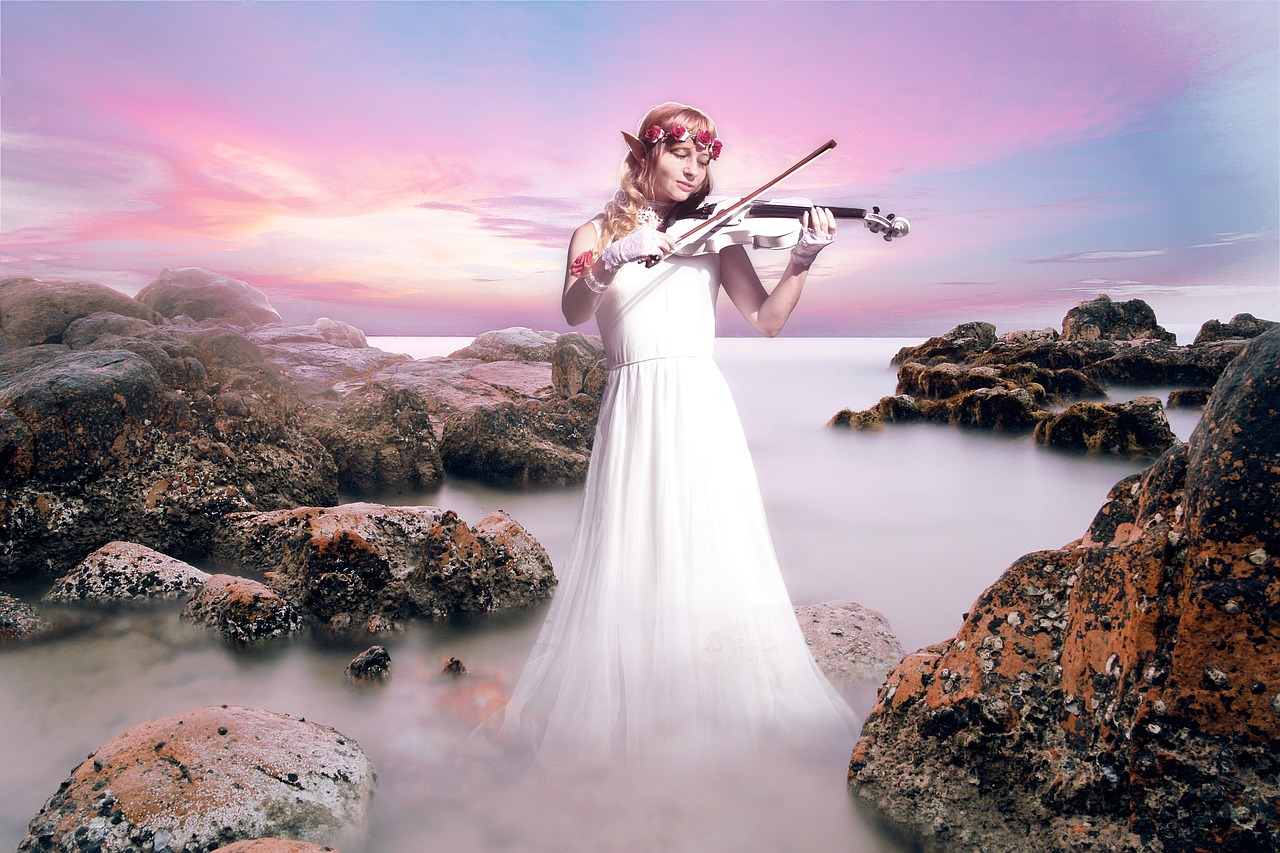
Hel, the Goddess of the Underworld
Exploring the deities of Norse mythology, this article delves into the rich tapestry of gods and goddesses worshipped by the ancient Norse people, their roles, attributes, and significance in Norse culture and belief systems.
Odin, the chief of the Norse gods, is known for his wisdom, magic, and connection to war and death. He rules over Asgard, the realm of the gods, and is associated with poetry, knowledge, and the gallows.
Thor, the mighty thunder god, wields his hammer Mjölnir to protect humanity from threats like giants and monsters. He is revered for his strength, courage, and fierce protection of both gods and mortals.
Frigg, the wife of Odin, is the queen of Asgard and the goddess of marriage, motherhood, and the home. She possesses the gift of prophecy and is deeply devoted to her family and the well-being of all.
Loki, the mischievous and cunning god, is both a friend and foe to the gods. Known for his shape-shifting abilities and clever schemes, he often brings chaos and trouble to Asgard, challenging the order of the cosmos.
Freya, the enchanting goddess of love, beauty, and fertility, is a powerful and independent figure in Norse mythology. She is associated with magic, war, and sensuality, embodying both love and war in equal measure.
Tyr, the god of law and heroic glory, is revered for his sense of duty, courage, and sacrifice. He is known for his role in binding the monstrous wolf Fenrir and upholding justice and order in the cosmos.
Baldur, the beloved and radiant god of light and purity, is known for his beauty, goodness, and invulnerability. He brings joy and peace to the gods and is mourned deeply when he meets a tragic fate.
Hel, the ruler of the realm of the dead, Helheim, is a complex figure associated with death, rebirth, and fate. She governs over those who die of sickness or old age, offering a place for the deceased to dwell in peace.
Frequently Asked Questions
- Who were the major gods and goddesses in the Norse pantheon?
The major gods and goddesses in the Norse pantheon include Odin, Thor, Frigg, Loki, Freya, Tyr, Baldur, and Hel. Each deity has distinct characteristics and roles within Norse mythology.
- What are some key attributes of Odin, the Allfather?
Odin is known for his wisdom, magic, connection to war and death, association with poetry, knowledge, and ruling over Asgard. His iconic symbol is the gallows, representing his sacrifices for knowledge and power.
- How is Thor, the God of Thunder, portrayed in Norse mythology?
Thor is depicted as a mighty protector wielding his hammer Mjölnir to defend against threats like giants and monsters. He embodies strength, courage, and loyalty, symbolizing the fierce protection of both gods and mortals.
- What role does Freya, the Goddess of Love, play in Norse mythology?
Freya is a powerful and independent figure associated with love, beauty, and fertility. She represents the duality of love and war, embodying magic, sensuality, and strength in Norse culture.
- Who is Hel, the Goddess of the Underworld, and what is her significance?
Hel rules over the realm of the dead, Helheim, and is connected to themes of death, rebirth, and fate. She provides a peaceful dwelling place for those who pass away from sickness or old age in Norse belief.




